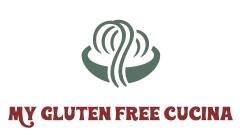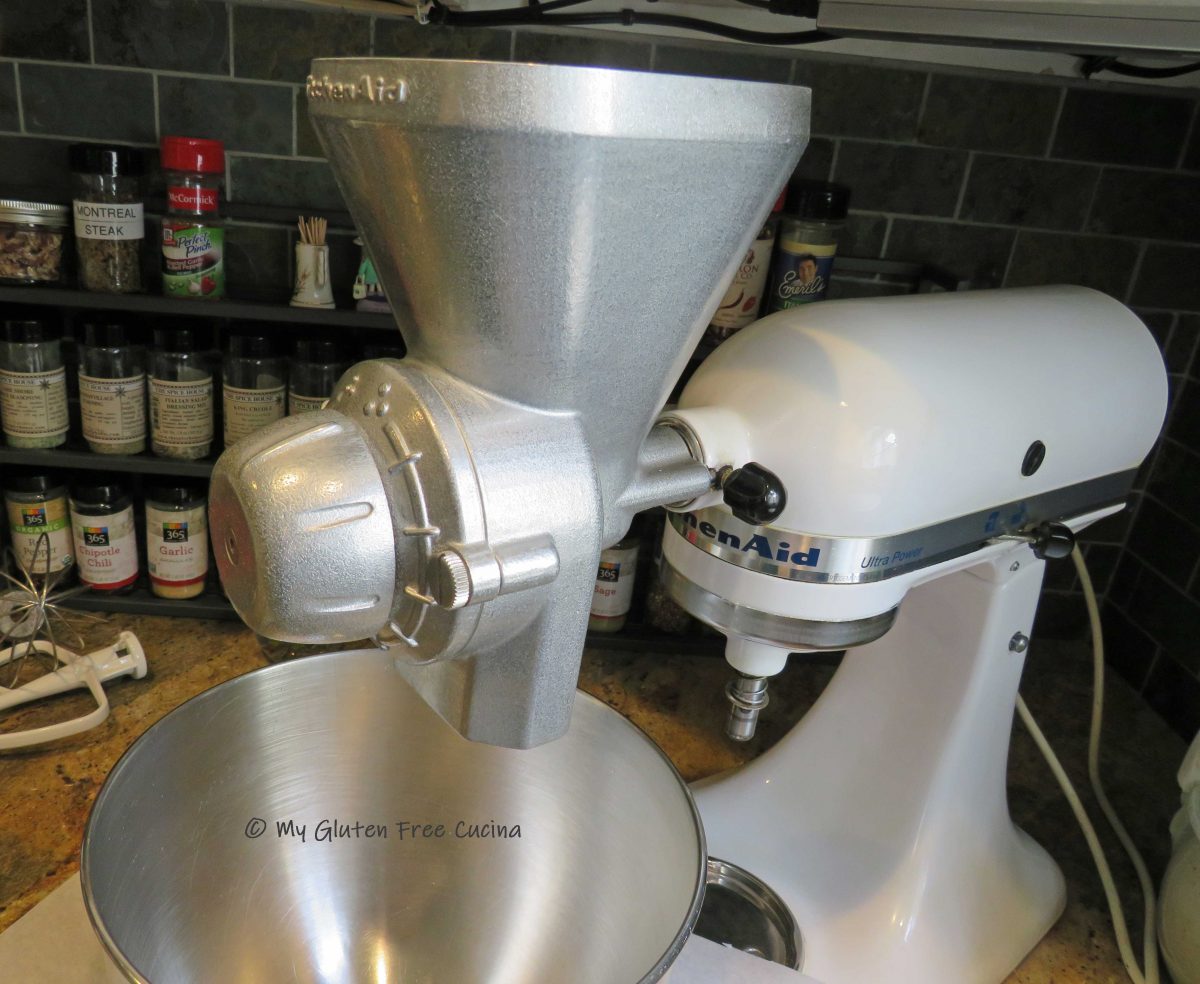5 Reasons Why You Should Own a Grain Mill
A grain mill can be one of the most healthful and economical investments you can make for your home kitchen. For me, this was never more true than when I had to learn about gluten free baking. The right tools can make all the difference to those of us who must adhere to a strict gluten free diet.
I have always been a home bread baker (long before Celiac) and have owned a KitchenAid stand mixer for decades. If you already have the mixer, just imagine what you can do with the grain mill attachment!
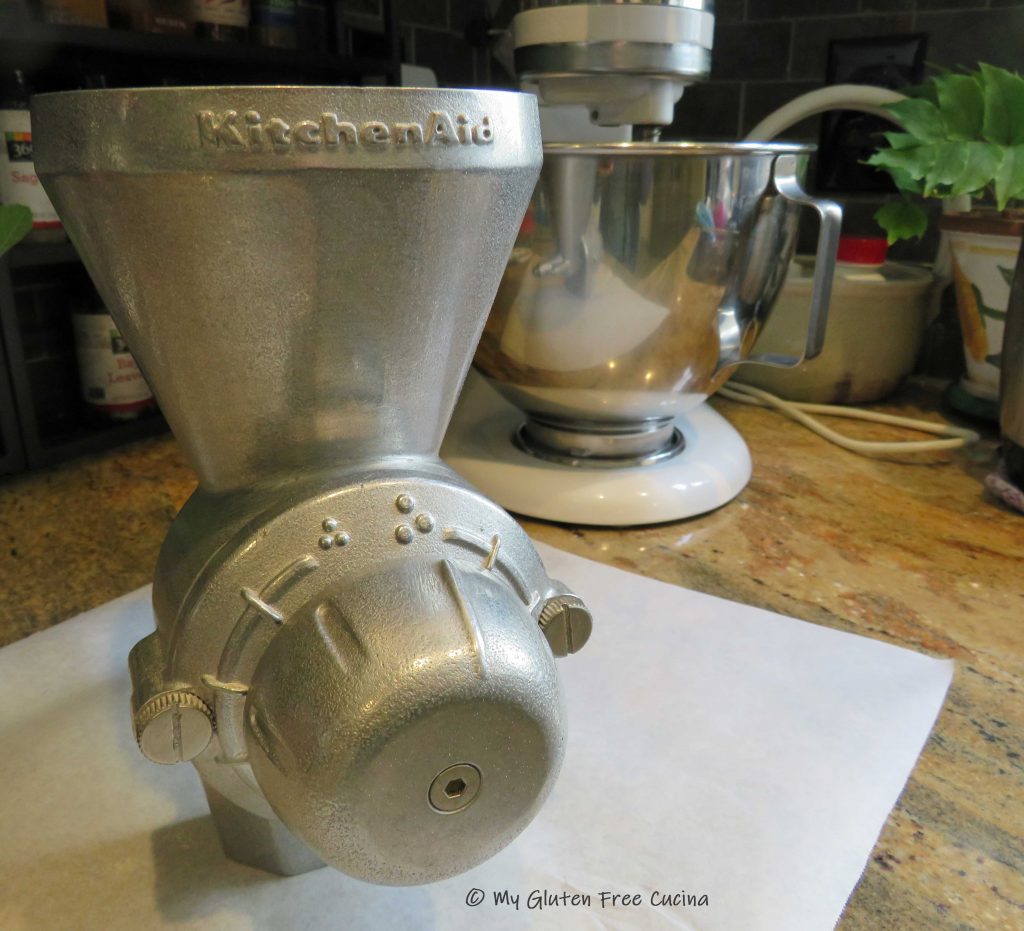
This is not a novelty item, it is a workhorse in my kitchen and has helped me immensely in my commitment to make tasty, gluten free bread from scratch. Watch!
Consider adding it to your collection. It will last a lifetime and change the way you bake forever. Check out the 5 reasons why you should own and use a grain mill.

This post contains affiliate links.
-
Eat Healthy
Improve your diet by consuming more whole grains. When you mill the entire grain into flour, you get all of the nutrients from the germ and the bran. We all know that so many gluten free breads and snacks are made with refined flour and contain almost no fiber. Milling your own flour and baking from scratch is healthier by far and gives your body those much-needed nutrients and fiber grams!
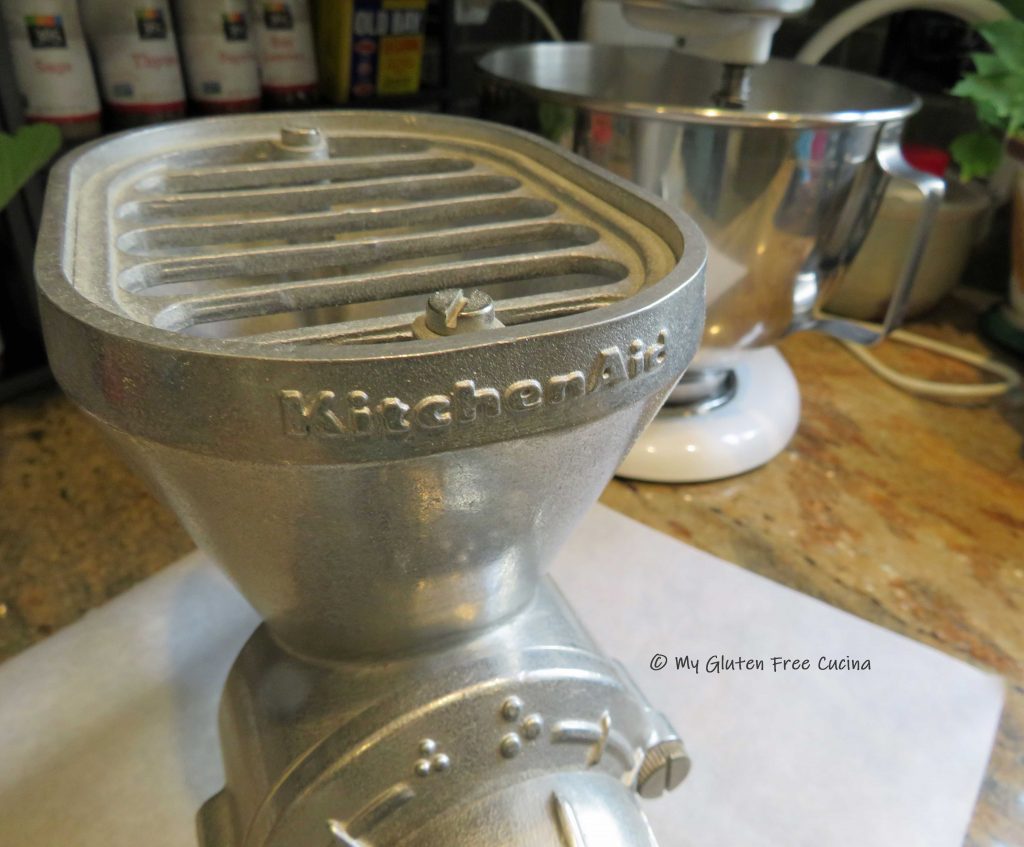
-
Stay Fresh
Once a whole grain is milled into flour you will need to pay careful attention to its expiration date. This is because oils present in the bran and the germ can become rancid over time, giving your flour an off taste and smell. (Refined grains have the bran and germ removed, giving them a longer shelf life.) Stored in its grain state, your pantry inventory will remain fresh for much longer. Milling your grain just before baking ensures that it will always be fresh and delicious.
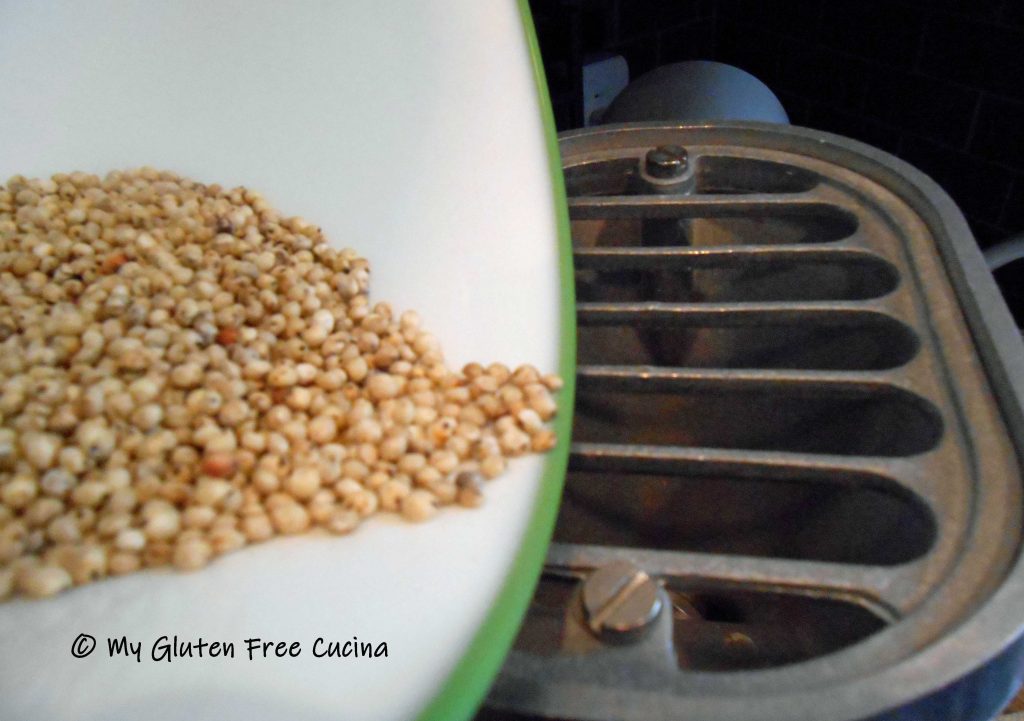
-
Save Money
Gluten free flour is expensive! Oh my, did I have sticker shock the first time I went shopping. Purchasing the grain in its whole form can be less expensive, and it will last longer than milled flour. Mill only the amount needed for a recipe (measure by weight). Not only will you have the freshest tasting baked goods every time, but you will save money by not throwing away unused flour that has degraded over time.
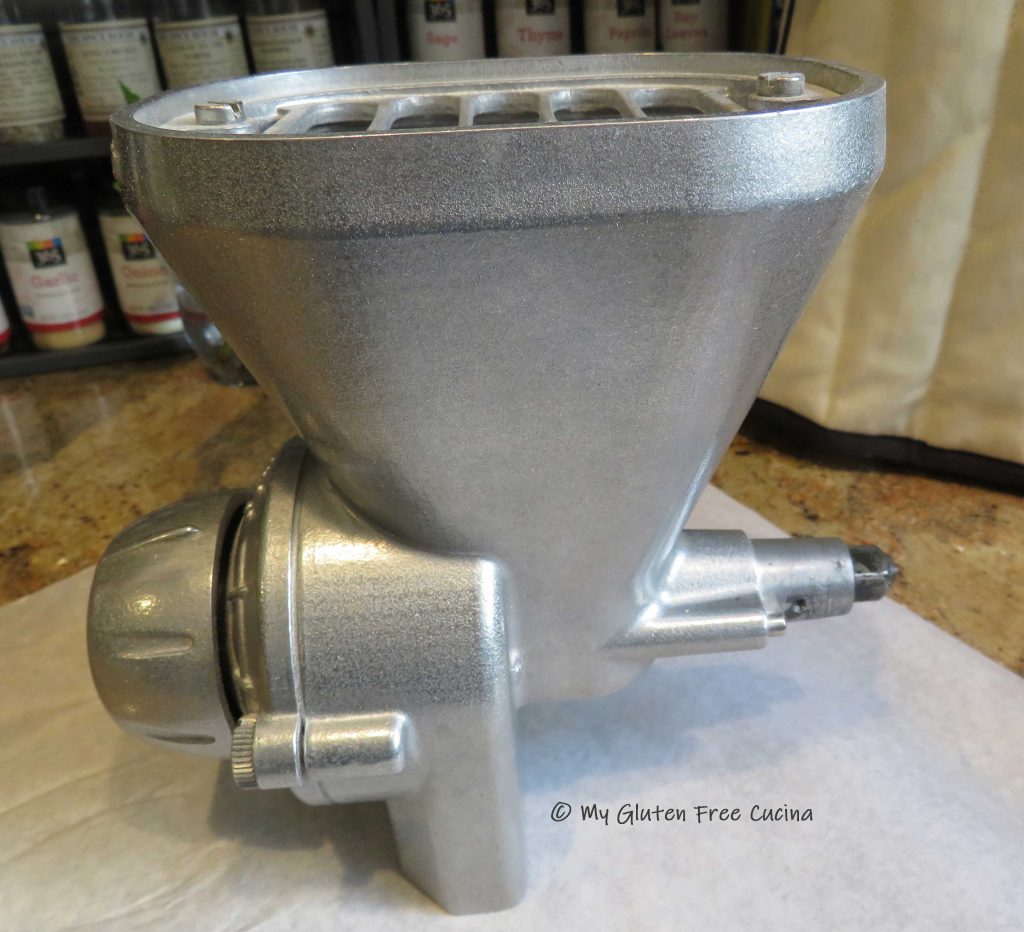
-
Be Versatile
Buy a single grain that you can use in both whole and flour form. Buy a big bag of brown rice and use it for cooking, as well as milling into brown rice flour for baking. Some of my other favorites are sorghum, millet and buckwheat. All are sold in their less expensive whole form and can be processed into flour or enjoyed as a side dish.
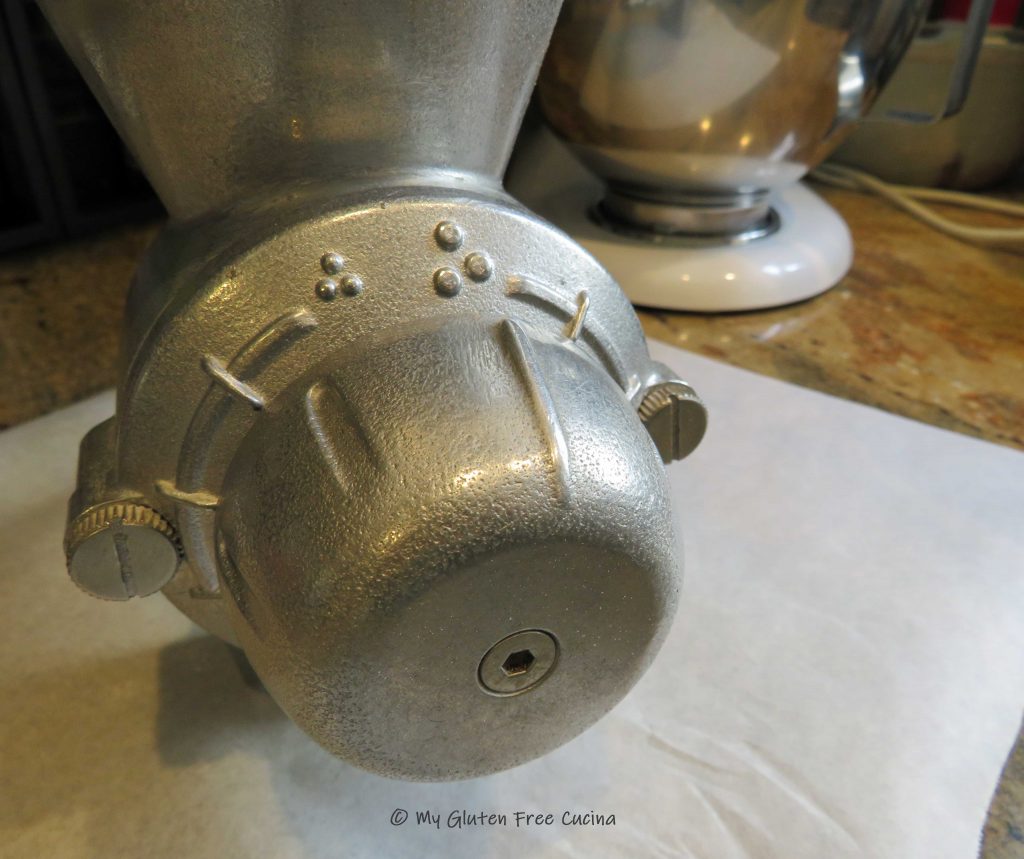
-
Have Fun
Baking is fun! Experiment with different grain combinations without investing in an array of flours that you may only use one time. You may never make that quinoa bread again, but you will probably use up the quinoa grain as a tasty side dish. I am a big believer in this D-I-Y, from scratch approach and I always have my pantry stocked with my favorites.
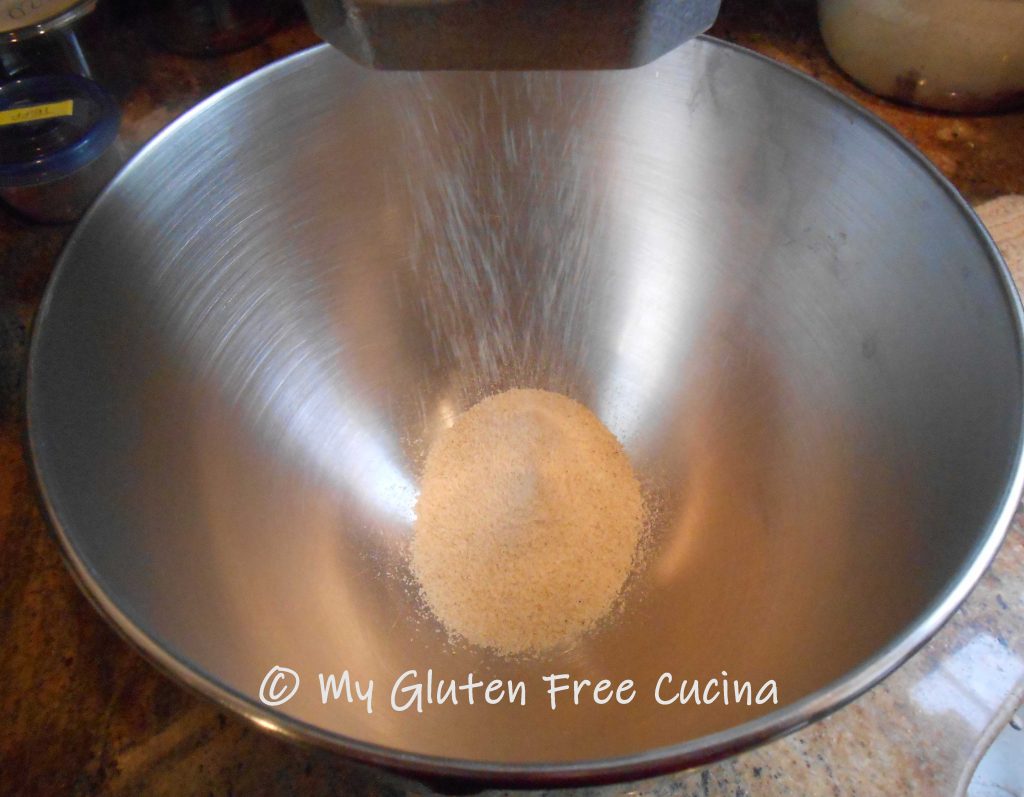
If you enjoy my bread recipes, I hope you will consider adding this wonderful tool to your kitchen!

